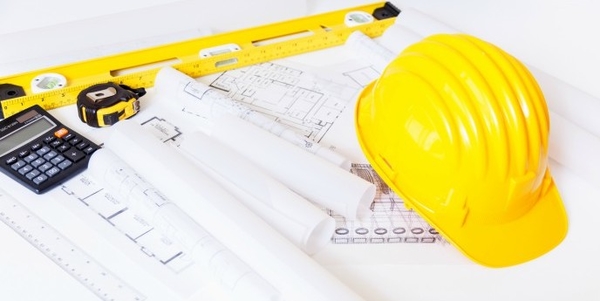CIS explained – advice for company directors in the construction industry
If you’re in the process of setting up a limited company in the construction industry, you’ve no doubt heard of the Construction Industry Scheme (CIS). The scheme, which relates to the way taxes and National Insurance Contributions (NICs) are deducted by contractors from sub-contractors, has been in place for many years and its purpose is to prevent fraud or tax evasion within the industry. But how does it work, and is it beneficial for your company to register under the scheme? Here, we outline the rules and answer common questions about CIS.

What is CIS and how does the scheme operate?
The Construction Industry Scheme sets out special tax rules that apply to contractors and subcontractors involved in construction work. Under these rules, payments made from contractors to subcontractors (minus materials and certain other costs) are subject to a deduction for tax and NICs. Once the contractor has made the deduction, the money must be paid directly to HMRC. The subcontractor has then effectively paid tax upfront without having to put the money aside – an ‘advance’ that will go towards their final tax bill at the end of the financial year.
One advantage for contractors working with CIS-registered subcontractors is that they have the security of knowing their supplier is a legitimate business registered with HMRC.
What CIS deductions must contractors make from subcontractors’ payments?
Deductions are made at 20% for subcontractors registered under CIS, and a higher rate of 30% for those who aren’t registered. In addition, for subcontractors who have ‘gross payment status’ no deduction is made for CIS, and the subcontractor is paid in full.
What kind of construction work is covered by CIS?
Most construction work is covered, including permanent or temporary buildings and structures. Work in the private sector is included, as well as civil or public projects such as roads and bridges. According to HMRC, the nature of construction work under the scheme includes jobs such as:
- Site preparation
- Alterations
- Construction
- Demolition
- Repairs
- Decoration
What if my company operates as both a contractor and a subcontractor?
The construction supply chain can be complicated, so it isn’t unusual for a company to act both as buyer and supplier of services. If this is the case for your business, you should register in both capacities, and follow the rules for each type of status.
As a contractor, once registered you must check whether subcontractors are also registered under CIS and pay them accordingly depending on their tax status. The contractor must submit online monthly statements to HMRC with details of CIS deductions they have taken from subcontractor pay.
For subcontractors – whether operating as a limited company or sole trader – it’s advisable to register with CIS. You don’t have to sign up with the scheme, but if you don’t your deductions will be at the higher rate.
What is gross payment status?
Subcontractors have the option to apply for gross payment status under the CIS scheme. To be eligible, the subcontractor must show it is a credible business with a record of paying tax bills on time, and must also satisfy a turnover test. If gross payment status is accepted by HMRC, the business has the advantage of being paid without any tax deductions from the contractor, enabling improved cashflow and better short-term control over finances.
Will the new domestic reverse charge affect my construction business?
The short answer is ‘Yes’! The new domestic reverse charge will be introduced in October 2020 – a date that is creeping ever closer. This is essentially another layer to CIS, but this time dealing with VAT rather than direct taxes and NICs.
The scheme is designed to prevent non-payment of VAT by fraudulent subcontractors who charge VAT, then ‘disappear’ before the VAT cash is paid back to HMRC. Under the scheme, the customer/supplier will account for the VAT and pay it directly to HMRC, rather than pay it to the subcontractor and rely on the money finding its way to the government’s coffers.
Need advice on CIS and the domestic reverse charge?
While we’ve outlined the main elements of CIS and the new VAT rules, this is a complex area that includes various exemptions and exceptions. It’s always wise to seek expert advice from a reputable accountancy firm with relevant experience in the field. Here at Perrys Chartered Accountants, we can offer the very best support from highly-trained professionals who work with construction industry clients on a day-to-day basis. Please don’t hesitate to get in touch to discuss how we can help your business succeed.







